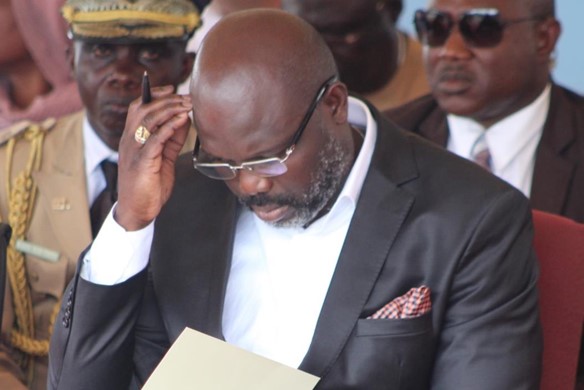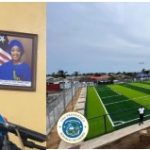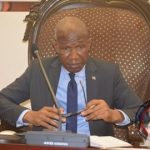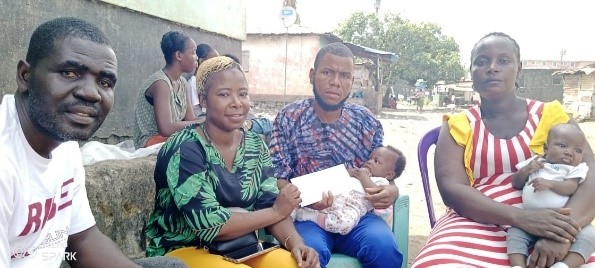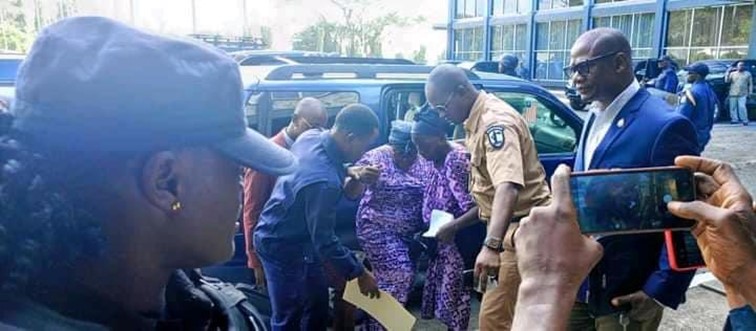The US State Department has released its 2023 report on trafficking in person, ranking Liberia on Tier 2 for failing to meet the minimum standards for the elimination of trafficking, but making significant efforts to do so.
“The government demonstrated overall increasing efforts compared with the previous reporting period, considering the impact of the COVID-19 pandemic, if any, on its anti-trafficking capacity; therefore, Liberia remained on Tier 2. These efforts included prosecuting and convicting an official complicit in human trafficking and identifying more victims and referring them to services,” the report noted.
The report stated that the government did not meet the minimum standards in several key areas. “Investigations decreased and law enforcement officials continued to lack adequate resources and understanding of trafficking to effectively investigate and prosecute trafficking crimes. Victim services, especially shelter, remained insufficient,” the report disclosed.
“As reported over the past five years, human traffickers exploit domestic and foreign victims in Liberia, and traffickers exploit victims from Liberia abroad. Trafficking within the country is more prevalent than transnational trafficking, and the majority of victims are children. Traffickers recruit and exploit most trafficking victims within the country’s borders in domestic servitude, forced begging, sex trafficking, or forced labor in street vending, gold and alluvial diamond mines, and on small-scale rubber plantations,” the State Department Report on Trafficking in Person on Liberia further disclosed.
According to the report, “Traffickers typically operate independently and are commonly family members who promise impoverished relatives a better life for their children or promise young women a better life for themselves. They take the children or women to urban areas and exploit them in forced labor in street vending, domestic service, or sex trafficking. Traffickers are also often well-respected community members who exploit the ‘foster care’ system common across West Africa. Liberian law requires parents to register children within 14 days of birth, while about two-thirds of children under the age of five are registered, only about 30 percent have obtained a birth certificate. Although the government has expanded birth registration accessibility, continued lack of birth registration and identity documents increase individuals’ vulnerability to trafficking.
“Traffickers exploit orphaned children in street vending and child sex trafficking. Some parents encourage their daughters’ exploitation in sex trafficking to supplement family income. Liberian nationals and, to a lesser extent, foreigners exploit children in sex trafficking in Monrovia. Traffickers allegedly compel children to sell illicit drugs. Cuban nationals working in Liberia may have been forced to work by the Cuban government.
“In the past, officials have identified trafficking victims from the People’s Republic of China, Malaysia, and India. Nationals from other West African countries, including Sierra Leone and Guinea operate in Liberia. Traffickers exploit a small number of Liberian men, women, and children in other West African countries, including Cote d’Ivoire, Guinea, Mauritania, Nigeria, Senegal, and Sierra Leone. In the past, traffickers exploited Liberian victims in Thailand, Lebanon, and Finland. Traffickers exploit Liberian women for forced labor in the Middle East, including Oman.”
The report indicated that some government employees may have been directly complicit in child trafficking, including for domestic service and street vending, and reports indicate law enforcement occasionally accept bribes from suspected traffickers.
The report underscored government’s effort in prosecuting trafficking cases, protecting victims and preventing human trafficking. It outlined the Ministry of Labor’s operation of an anti-trafficking hotline during business hours, though observers noted it did not always appear to be working. The government reported receiving 20 trafficking-related calls which were referred to LNP for investigation.
“The government conducted 1,044 labor inspections, but did not report how many of those investigations were specifically focused on child labor and inspectors did not report identifying any child labor or trafficking victims. Some labor inspectors were trained on laws related to child labor, but most did not receive any training. The government began conducting a child labor mapping exercise to identify relevant community leaders and educate local officials about child labor and human trafficking issues.
“During a previous reporting period, LNP visited popular beaches and entertainment centers in Monrovia known to have high instances of child sex trafficking, spoke with community groups, and distributed fliers to sensitize citizens on child protection issues. The government required all labor recruiters to be licensed by the government.”
But the report indicated that the government did not make efforts to reduce the demand for commercial sex acts, and did not provide anti-trafficking training to its diplomatic personnel or peacekeepers.
Read full Report at https://ow.ly/ygxw50OPEsr

